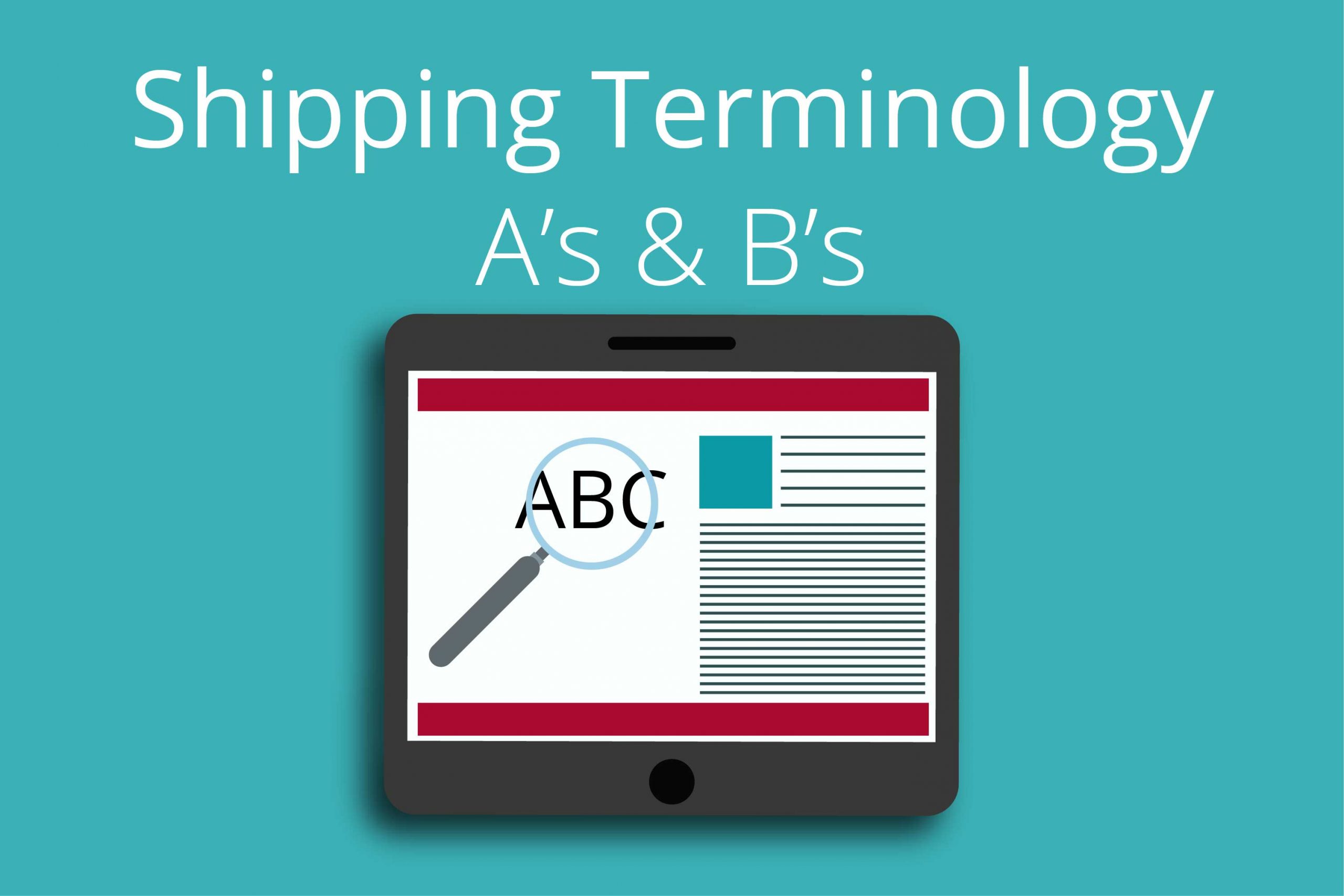To help you understand terms used in the shipping industry, whether familiar or not, we created an index of sorts with many useful shipping terms. We hope that these aid you in communicating, interpreting, and managing your business.
Absolute Minimum Charge (AMC): Synonymous with “Minimum Charge.” The minimum charge a shipment will be handled for after all discounts and pricing terms.
Accessorial Charges: Extra charges for services beyond pickup and delivery.
Act of God: An act beyond control (i.e. lightning, earthquake, flood, etc.)
Air freight forwarder: Air freight forwarders pickup and deliver air shipments, consolidate individual shipments into larger shipments, and prepare shipping documents. Air freight forwarder often do not own or operate their own vessels, and are thus called “indirect air carriers.” Since air freight forwarders tender the shipments, airlines note the forwarder as the shipper (similar to an NVOCC.)
Air Waybill: An air waybill is similar to a Bill of Lading, however the contract is created between the shipper and airline. It is a shipping document used by airlines which specifies the shipment instructions, descriptions of the goods being shipped, and transportation charges.
Articles of Extraordinary Value: Articles that exceed $50.00 per pound per package. Common examples are currency, jewels, and precious stones. Carriers are not liable for articles of extraordinary value unless the goods are rated in published tariffs or classifications. If a different agreement is made, the value of the articles must be indicated on the Bill of Lading.
Bill of Lading:The Bill of Lading is a binding contractual agreement between you and the carrier that indicates a transfer of ownership, serves as a receipt for the goods, and describes the goods being shipped.
Bill of Lading Exemptions: Transportation providers are released from liability for loss, damage, or delay due to the terms and conditions of most bills of lading on these grounds:
- An act of God
- A public enemy
- The authority of law
- The act or default of the shipper
In addition, a transportation provider will not be liable for loss, damage, or delay caused by:
- The property being stopped and held in transit at the request of the shipper
- Owner or party entitled to make such request
- Lack of capacity of a highway, bridge or ferry
- A defect or vice in the property
- Riots or strikes
Bonded Carrier: A carrier that is certified by U.S. Customs to carry customs-controlled merchandise between customs locations.
Break Bulk Facility: A facility that separates various parts of a load into individual shipments that are routed to various destinations.
Broker: A broker is a contractor that is compensated to arrange for transportation on behalf of the shipper.



Recent Comments